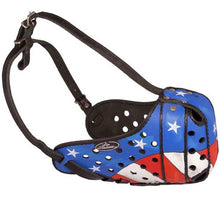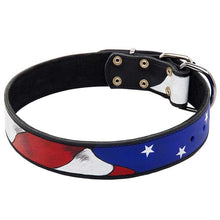Why Is My Dog Scratching Too Much And How To Help Stop It

Dogs scratch for many reasons and some dogs, such as German shepherds, can be prone to sensitive skin. Dogs with sensitive, itchy skin can be helped but the cause of the itching needs to be identified.
It’s not always easy to identify why a dog is scratching, and may take the help of a veterinarian or a specialist, but by reducing your pet’s itchiness, you can improve the quality of their life and reduce their risk of infection and skin injuries.

Some common reasons that dogs itch include:
- Shedding
- Needs a bath
- Parasites
- Dry skin
- Infection
- Nutrition
- Environmental allergies
- Food allergies
- Hormone imbalances, illness
Shedding
German shepherds shed year-round. They have a thick double coat that helps regulate their body temperature. As the weather changes, about twice a year, they blow their coat, which results in lots of shedding.
When they are blowing their coat, or shedding more than usual, they may scratch more often as they try to remove the excess fur. You can help de-shed them by brushing them often with an undercoat rake. It can also help to give them a bath in a conditioning, Ph balanced, de-shedding shampoo. If you lack time, consider a professional groomer a few times a year to help keep them well-groomed and less itchy.
If your dog suddenly starts to shed more than usual or their fur is getting thin and dull, you may need to visit the vet. Illness, stress, dermatitis, and infections can all contribute to excess shedding that requires medical care.

Bathing
German shepherds don’t need to be bathed very often. A few times a year is usually enough for most dogs. However, if they get wet, dirty, exposed to allergens, or have irritated skin, it can trigger lots of itching.
To remove the itchy triggers from their skin and fur, its best to give them a bath using a rubber bath brush, which will help loosen fur and debris and gently massage their skin. When bathing, consider using a conditioning shampoo made with oatmeal and aloe to relieve the skin from irritants. Be sure to follow with a conditioner to protect their skin and coat and dry them off, which will also help remove any dead fur.
Parasites
Parasites such as fleas, mites, and ticks can all cause excessive itching as well as a problem in your home and yard. Dogs infested with parasites experience intense itching and some even have allergic reactions all over their body but especially at their belly, rear, hocks, elbows, and ear flaps.
Once an infestation has happened, it’s best to see your vet for the appropriate medication and preventions for your dog. But you’ll also need to treat your home and yard since these parasites have a lifecycle, which puts your pet at risk of reinfection.
To sooth your pet as they heal from the bites, it’s best to give them a bath in a natural flea and tick shampoo to remove all bugs followed by a soothing shampoo and leave in conditioner.

Dry Skin
Dry, flakey, itchy skin can be caused for many reasons, including allergies, illness, infection, heat or air conditioning, being exposed to a household cleaner or soap, change in diet, or even needing more omega oil in the diet.
Severe dry skin may require a medical diagnosis but some easy things you can try at home to see if they help reduce your dog’s itching include switching to a sensitive skin food that is formulated to help protect and heal the skin barrier, add omega 3’s to your dog’s diet (such as sardines or omega oil), give less baths (if you’re over bathing), and use a dog skin moisturizer.
Infections
Itchy dogs are more prone to bacterial and fungal infections due to their constant scratching and licking. These infections also cause dogs to itch, creating a painful cycle of itchiness. Infections can usually be identified by intense itching, redness, sores, and may even have a foul odor.
One of the keys to helping a dog recover from a skin infection is to stop them from scratching. This can usually be done with a combination of antibiotics or antifungals from your vet as well as anti-itch shampoos and sprays.

Nutrition
German shepherds tend to do best on a high-quality food that is easy to digest and nourishes the skin and coat. However, not all dogs thrive on the same food. There are many opinions about which dog food is best but what works great for one dog is sometimes a disaster for another.
When feeding your dog, looking for a high-quality food for large breed dogs (usually over 50 pounds) that is AAFCO labeled complete and balanced for the life stage of your dog. Many foods created for sensitive dogs are free of corn, wheat, and soy yet still contain some grains, while others are grain free.
Environmental Allergens
Controlling the itching in dogs with environmental or seasonal allergies can be difficult. Depending on the severity of the problem, you may want to consider allergy testing and immunotherapy.
Things you can do to help include relieving symptoms with medications, using anti-itch shampoos, washing their paws and washing their face and stomach before bed, feed omega 3’s, kelp, and probiotics to help relieve inflammation, and use natural, gentle cleaning products in your home and especially on their bedding.

Food Allergies
Food allergies are far less common in dogs than environmental allergies. So, if you notice your dog’s symptoms come and go while on the same food, you may want to see your vet about environmental allergy testing.
According to Tufts University, "Food allergies occur when an animal's immune system misidentifies a protein from a food as an invader rather than a food item and mounts an immune response. The end result of this response can be itchy skin or ear and skin infections in some pets, while it may cause vomiting or diarrhea in others."
Once an immune response is triggered, it grows stronger every time that type of protein enters the body. Which means every time your dog eats the offending food, it triggers an immune response and may worsen every time your dog eats that particular ingredient.
Dogs are also far more likely to be allergic to the protein in a food (chicken, beef or eggs) than grains. In fact, allergies to rice or oats are rare and allergies to other grains, uncommon. So, if you keep rotating foods but are feeding the same protein or beans and legumes, that could be the problem.

Hormone Imbalances and Illness
There are some health issues in dogs that can cause itching such as diabetes, thyroid disorders, Cushing’s disease, cancer, and immune system disorders. If your dog suddenly starts itching or is itching more than usual, it’s a good idea to see your vet.
We hope these tips help your dog live itch free. Please feel free to share them with your friends with itchy dogs.
You may also like: Skin Problems In German Shepherds And What You Can Use To Help Relieve Them
























